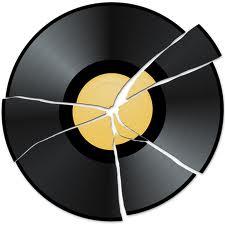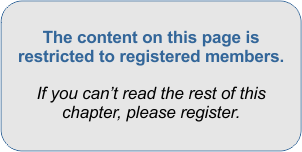
I think there should be NO DOUBT about what is actually PREFERABLE: and that’s going indie.
Not only is it better in just about every conceivable way, it is also the only way you can ever be considered for a major recording contract these days. Proof of concept. First establish yourself as an independent, be successful within your niche, and only then decide if you want to look for a major deal. Chances are, if you follow this course and manage to establish yourself properly, you won’t even want to consider it.
[emember_protected for=2-3-4-5]
 Besides, why would you want to turn your career over to a label when you could control it personally?
Besides, why would you want to turn your career over to a label when you could control it personally?
Additionally, with some of the techniques discussed in the third part of this course, you’ll learn ways in which you can – literally – outperform the majors in terms of your Internet-based popularity. Believe it or not, many majors still don’t know how it’s done! They only know the heavy-handed method (throwing money at the problem), and relatively few know how to properly leverage the power of web-based music marketing, most of which can be done really cheaply (though not without some well-informed work). You’ll have that knowledge by the time you finish this course.
But I don’t want you to dismiss the “major option” entirely out of hand either. Getting signed to a major label is an extremely high bar and, as they say, it’s better to aim for the stars and miss than aim for a pile of dung and hit. So let me give you just a few general thoughts, when considering approaching the majors.
You should raise your own bar to the same height as theirs.
Record labels today no longer look for artists who want to lean on them for support. They look for artists who have already proved what they can do. Artists who already have audiences and are already making money. Artists who fulfill the emotional needs of their audiences.
There is no set formula for “making it.” Many, many factors play into it and it varies from act to act. But those who do make it have a few things in common:
- They’re REAL musically (not put-on, not wannabe or also-ran)
- They’re capable of reaching their audiences at will and getting them to ACT (come to my gig, buy my album, get this product, etc)
- They’re ACTIVE, not passive.
- They don’t expect to be served, they make things happen by themselves.
Would YOU rather work with a needy someone who keeps leaning on you for everything than someone who knows how to get things done without you telling them?
Whether you choose the indie or the major route, they’re one and the same in the beginning – possibly for the first few years. You NEED to develop the basics no matter what. Solid product. Solid marketing. You will NOT get a deal if you just “show up” at a label’s door. If you do – you’ll be one in a billion.
So, as you build your music business, make friends and keep an open mind. That attitude will serve you as well as anything else you’ll learn through life. Be a good listener and a pleasure to work with.
Superb technical preparation means very little if the artist is hard to get along with. Every label I know, including my own, back in the day, has refused to work with artists simply for “personality reasons.”
You want your relationships to be synergistic.
And remember, take comfort and confidence from the simple truth that there is always a niche out there for you. Don’t try to please anyone, be yourself – and conquer it. And be a good friend of everyone who helps you along the way.
[/emember_protected]
 |
 |
 |
| Book 1 – Chapter 08 Your Competition |
Course Overview | Book 1 – Chapter 10 Understanding Before Planning |
Book 1: 1, 2, 3, 4, 5, 6, 7, 8, 9, 10, 11, 12, 13, 14, 15, 16, 17, Overview

